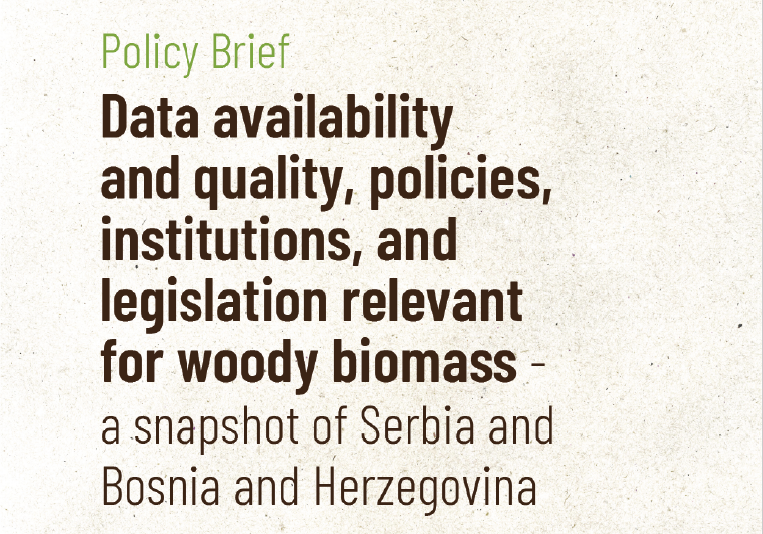
In the third publication out of four that are prepared within the project „Woody biomass: win-win or lose-lose? Energy, climate and air pollution effects of biomass to power projects in the context of selected Western Balkan countries” we argued that the biomass for energy is a contentious but unavoidable policy issue in the Western Balkans. It is undisputable that forests are life, life largely bred by people that provide for numerous essential private and public goods to individuals, communities, societies, and the mankind. Learning more about forests and the ways we use them, clarifying and agreeing on arrangements for their future role, its use or non-use is essential for our economies and society. We hope that this brief will help institutions and individuals in Serbia and Bosnia and Herzegovina to learn more, clarify more and agree to larger extent on the critical aspects for the use of forests in these countries. Currently, we still do not know enough.
In 2024, forests cover more than 50% of the territory of Bosnia and Herzegovina (and both entities) and more than 39% of the territory of Serbia. Yet, we do not have sufficiently good quality of information about our forests, and we communicate poorly what we know. This additionally impacts the low level of trust in data and policies.
Sectoral strategic documents are under development in both the Federation of Bosnia and Herzegovina and Republic of Srpska. Since the results of the new Forest Inventory are known in Serbia, it is the time for Serbia to finally develop the Program for Forestry Development that would replace the outdated Strategy for the Forestry Development adopted in 2006. Overall, the development of strategic level documents whether strategies or programs have been challenging, while at the same time the forests are being utilized. There is a sense of urgency when it comes to the development of a strategic framework and the direction of forestry sector that is based on recent data for all mentioned countries/entities. This is even more important considering the forest policy dynamics at the EU level including interaction with the related policy areas such as climate change, biodiversity, energy.
Read the full policy brief: Data availability and quality, policies, institutions and legislation relevant for woody biomass – a snapshot of Serbia and Bosnia and Herzegovina
